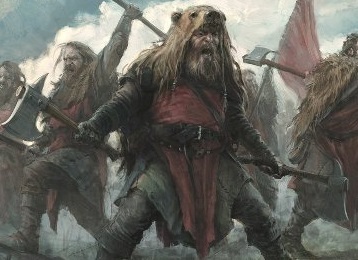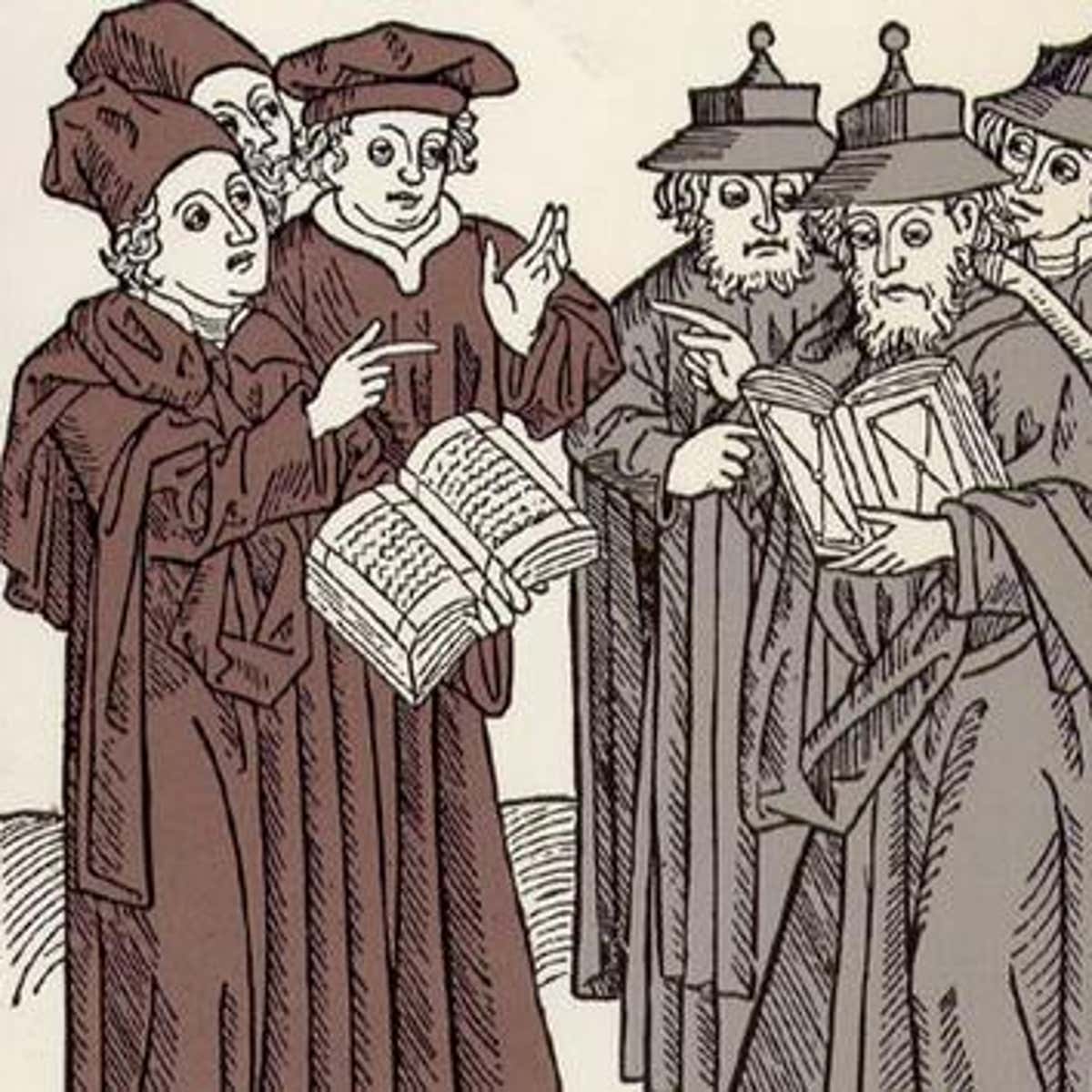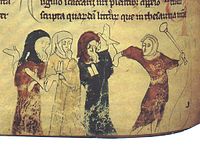בוקר טוב לכולם!
Let’s talk about antisemitism during the Viking Age as shown in the work of Snorri Sturluson ( https://en.wikipedia.org/wiki/Snorri_Sturluson), who compiled and in part authored the Prose Edda, from which we get most of Norse mythology.
TW for antisemitic words & images
Thread!
1/
Let’s talk about antisemitism during the Viking Age as shown in the work of Snorri Sturluson ( https://en.wikipedia.org/wiki/Snorri_Sturluson), who compiled and in part authored the Prose Edda, from which we get most of Norse mythology.
TW for antisemitic words & images
Thread!
1/
(I’m taking most of this from Richard Cole’s “Snorri and the Jews” (2017)).
The relationship of medieval Scandinavians to their Viking Age (793-1066) predecessors was some pride over their accomplishments mixed with a heaping helping of contempt over their heathen ways.
2/
The relationship of medieval Scandinavians to their Viking Age (793-1066) predecessors was some pride over their accomplishments mixed with a heaping helping of contempt over their heathen ways.
2/
When the Scandinavians were officially converted to Christianity (Denmark 1104, Norway 1154, Sweden 1164), many took to the new religion with as much fervor as they’d shown in worshiping the Viking pantheon of Odin, Thor, Freyja, etc. (There were many holdouts, of course)
3/
3/
Because Snorri lived in the 12th & 13th centuries, this meant scorning their predecessors & holdouts as pagans & heathens—and worse: “witches, troublemakers, and ne’er-do-wells; relics of a bygone age, waiting either for conversion or the righteous violence of the pious.”
4/
4/
This attitude was extended to every “heathen.” Including Jews, despite the fact that there were none at the time (that we know of) in Scandinavia or in Iceland, Snorri’s home.
As in the rest of Europe during Snorri’s lifetime, antisemitism was rife in Scandinavia.
5/
As in the rest of Europe during Snorri’s lifetime, antisemitism was rife in Scandinavia.
5/
There were ~450,000 Jews in Europe during Snorri’s adult life, and they were subjected to the worst sort of harassment, abuse, and violence, largely due to the Christianity of the time. The lack of Jews in Scandinavia did not prevent Snorri from recapitulating antisemitism.
6/
6/
To put this into context: the Prose Edda was written a few years after the Church declared that all Jews had to wear clothing distinguishing them from Christians. During Snorri’s lifetime there were blood libel accusations & massacres in London, Oxford, Winchester, and York.
7/
7/
By the time Snorri died in 1241, there’d been anti-Jewish pogroms following the coronation of Richard Lionheart; crusading mobs had slain over 2,500 Jews in northern France; and Pope Gregory IX had put the Talmud on trial in Paris.
These are the waters Snorri swam in.
8/
These are the waters Snorri swam in.
8/
Also: did Snorri know about the antisemitic legends of William of Norwich ( https://en.wikipedia.org/wiki/William_of_Norwich) and Robert of Bury ( https://en.wikipedia.org/wiki/Robert_of_Bury)? You betcha he did!
8a/
8a/
Theologians, thinkers, historians, and poets of those decades all made use of the themes of the wicked Jew, thanks to the Gospels, popular accusations of Jewish perfidy, the associations made with “the Jew” in Christian writings about the Bible, & Christian supercessionism.
9/
9/
Now, Snorri didn’t put any Jews into the Prose Edda, but there are several figures in it who “make use of the potent typological armory of anti-Judaism.” Snorri didn’t engage in allegory (a common method) but did borrow from antisemitic artistic & theological traditions.
10/
10/
Snorri “was inspired by contemporary ideas about Jews and Judaism, and he then deployed these ideas, liberated from their original frame of reference, in the fantasy world of his Edda.”
#1) the death of Balder the Shining, purest of the gods, at the hands of Loki & Hǫðr.
11/
#1) the death of Balder the Shining, purest of the gods, at the hands of Loki & Hǫðr.
11/
During Snorri’s lifetime Balder was often associated with Jesus and described as having Christ-like attributes. Snorri doesn’t seem to have been a literal thinker, but there are some direct, one-to-one allegories present in Snorri’s version of Balder’s death. To wit:
12/
12/
a.Per the contemporary understanding, Jesus was killed by the Jews, who were manipulated by Satan. The Jews were portrayed as being blind—a recurring Norse & European trope of the time.
b.Per Snorri, Balder was killed by Hǫðr, a blind god who was manipulated by Loki.
13/
b.Per Snorri, Balder was killed by Hǫðr, a blind god who was manipulated by Loki.
13/
c.Per contemporary understanding, everything acknowledged Christ’s divinity by their sorrow at his death—except for the Jews, who turned away and refused to acknowledge him.
d.All things wept when Balder died—except for the giantess þǫkk, who was Loki in disguise.
14/
d.All things wept when Balder died—except for the giantess þǫkk, who was Loki in disguise.
14/

 Read on Twitter
Read on Twitter

















